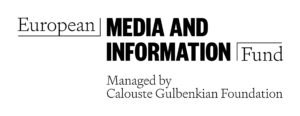🇮🇸 Reykjavík U, smart-clothing start-up enter partnership

By Elías Thorsson
REYKJAVÍK — TYME WEAR,a maker of smart-clothing, has agreed a partnership with Reykjavik University on laboratory use and data analysis. The company was founded in 2014 by Arnar Freyr Lárusson, a mechanical engineer, and is built around a smart shirt of the same name.
The Tyme Wear shirt measures a person’s breathing and sends data to an app that provides the wearer with information about their fitness level that previously would require lab testing to obtain.
The company has identified its primary audience as individuals interested in physical fitness, but Tyme Wear is also being used by the Norwgian Olympic team and a number of professional athletes.
Mr Lárusson said in a statement that the partnership would enable Tyme Wear to continue growing and improving its technology.
“Our goal at Tyme Wear is to enable as many people as possible to measure endurance and improve performance,” he said. “With the collaboration, we take an important step towards making Tyme Wear’s measurements accessible to as many people as possible.”
The wearable technology market has been growing exponentially over the past decade and according to a Bloomberg estimate will hit €175 billion by 2030. Devices like the Apple Watch have enabled people to track their progress and to create personalised exercise plans.
In 2020, Tyme Wear received ISK 200 million (€1.33 million) in investment led by Nýsköpunarsjóður, a state-owned investment fund.
This article has been fact-checked by Arctic Business Journal and Polar Research and Policy Initiative, with the support of the EMIF managed by the Calouste Gulbenkian Foundation.
Disclaimer: The sole responsibility for any content supported by the European Media and Information Fund lies with the author(s) and it may not necessarily reflect the positions of the EMIF and the Fund Partners, the Calouste Gulbenkian Foundation and the European University Institute.
